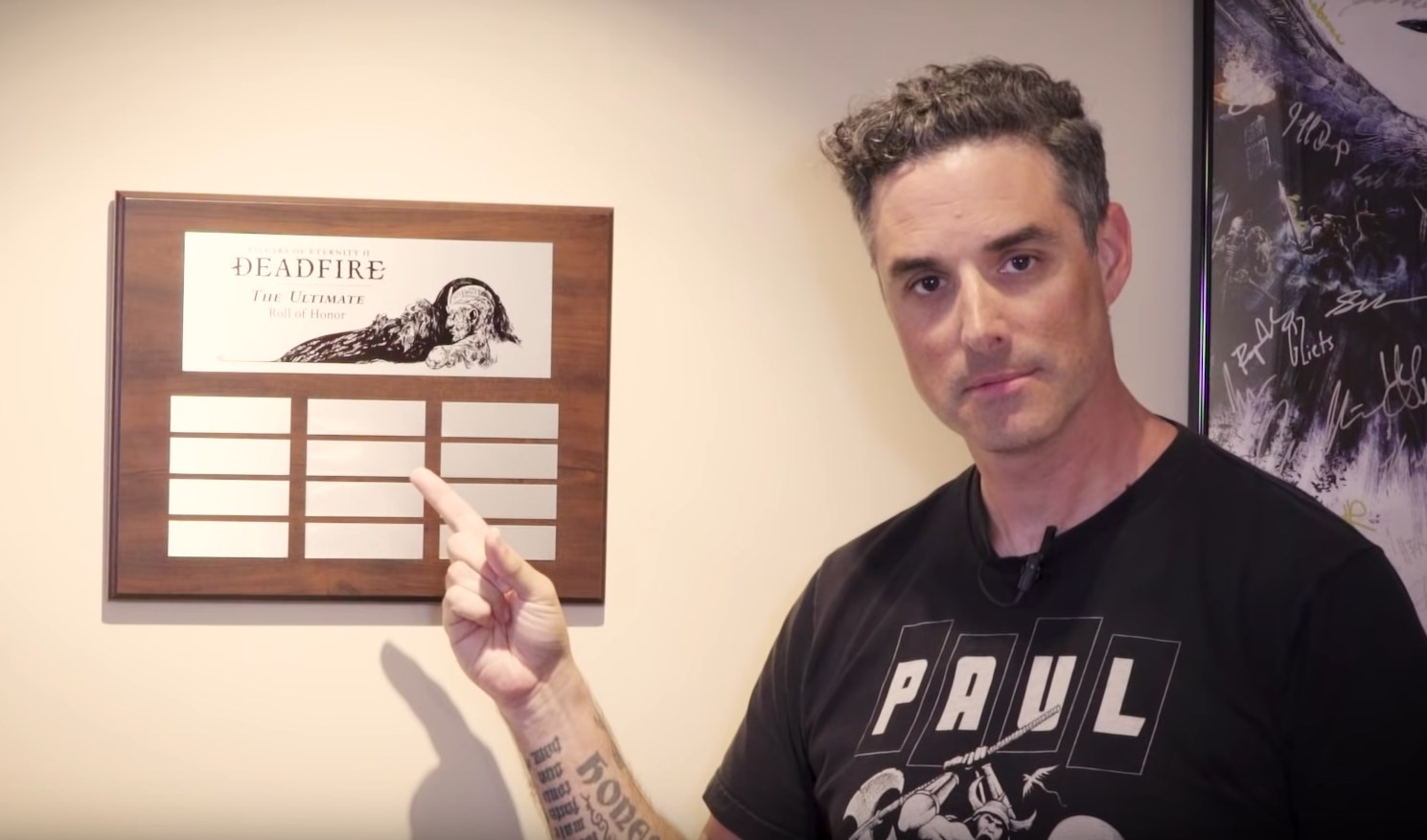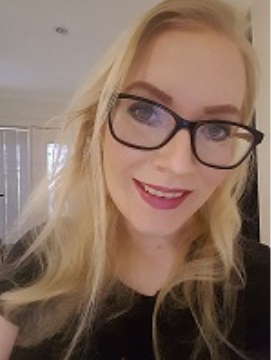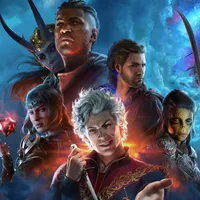Obsidian director Josh Sawyer says he's 'Never really felt secure in a job' in 26 years, and it's worse than ever now
"That’s actually pretty messed up."

Keep up to date with the most important stories and the best deals, as picked by the PC Gamer team.
You are now subscribed
Your newsletter sign-up was successful
Want to add more newsletters?

Every Friday
GamesRadar+
Your weekly update on everything you could ever want to know about the games you already love, games we know you're going to love in the near future, and tales from the communities that surround them.

Every Thursday
GTA 6 O'clock
Our special GTA 6 newsletter, with breaking news, insider info, and rumor analysis from the award-winning GTA 6 O'clock experts.

Every Friday
Knowledge
From the creators of Edge: A weekly videogame industry newsletter with analysis from expert writers, guidance from professionals, and insight into what's on the horizon.

Every Thursday
The Setup
Hardware nerds unite, sign up to our free tech newsletter for a weekly digest of the hottest new tech, the latest gadgets on the test bench, and much more.

Every Wednesday
Switch 2 Spotlight
Sign up to our new Switch 2 newsletter, where we bring you the latest talking points on Nintendo's new console each week, bring you up to date on the news, and recommend what games to play.

Every Saturday
The Watchlist
Subscribe for a weekly digest of the movie and TV news that matters, direct to your inbox. From first-look trailers, interviews, reviews and explainers, we've got you covered.

Once a month
SFX
Get sneak previews, exclusive competitions and details of special events each month!
Josh Sawyer has been making games professionally for 26 years. What started as a hobby, making and playing tabletop RPGs, has grown into a storied career. Sawyer had his first position in 1999 working at Black Isle Studios, and now serves as studio design director at Obsidian, where he led development on games like Fallout: New Vegas and Pillars of Eternity 1 and 2.
And yet, Sawyer believes job security for himself as well as other devs is worse than ever before despite his current position, as well as shipping so many well-respected titles over the years,
"In 26 years, I’ve never really felt secure in a job. Even now. Less so now, actually", he tells the audience during a keynote at GCAP, a game development conference in Melbourne, Australia. "That’s actually pretty messed up" he adds, almost as though he’s realising it upon saying it out loud.
The games industry is a vastly different space than it was 26 years ago when Sawyer began. Back then, teams of developers for AAA games were usually between 15-40 people, with almost everyone branching out across different skills and, more often than not, undergoing constant crunch to deliver. Halo: Combat Evolved, for example was a team of 40, and GTA 3 was put together by a 23-person team.
Now we see games made by teams that range from one person up to potentially thousands, if modern GTAs are to be believed. But according to Sawyer, these larger teams haven’t lead to greater job security, nor even necessarily better conditions. Instead, we see more contracts and short-term work for specialists, while crunch has been replaced by mass burnout.
As Sawyer says, "Games are bigger than ever (again), baby!" And this is a huge part of the problem. Development cycles have gone from an average of between 10 months to three years in the 2000s to 5-8 years now. While not every member of the dev team will be on board for the entire cycle, those that are often wind up feeling incredibly drained by the long process.
Wages for game developers also aren’t necessarily any better than before. With remote work becoming easier, some studios are outsourcing to the cheapest bidder. This has lead to devs looking for a living wage—or healthcare when it comes to living in countries like the USA—going hungry.
Keep up to date with the most important stories and the best deals, as picked by the PC Gamer team.
But remote work hasn’t been all bad. One area Sawyer has seen change for the better is diversity, which has been improved not only by changing times but by remote accommodations.
"I didn’t work with any women developers for my first five years", he says, adding that while queer and trans folk were definitely present, finding those that had the safety and comfort to be open about it was a rarity. Even other nationalities were uncommon, which is in stark contrast to the wonderfully diverse landscape we see now.
Overall, this videogame vet painted a picture of a precarious industry, which is baffling when you consider the money it brings in. If someone like Sawyer feels less job security than he did when he first start decades ago, despite games only continuing to grow, it’s hard to imagine many developers feel particularly safe in their employment.
2025 games: This year's upcoming releases
Best PC games: Our all-time favorites
Free PC games: Freebie fest
Best FPS games: Finest gunplay
Best RPGs: Grand adventures
Best co-op games: Better together

Hope’s been writing about games for about a decade, starting out way back when on the Australian Nintendo fan site Vooks.net. Since then, she’s talked far too much about games and tech for publications such as Techlife, Byteside, IGN, and GameSpot. Of course there’s also here at PC Gamer, where she gets to indulge her inner hardware nerd with news and reviews. You can usually find Hope fawning over some art, tech, or likely a wonderful combination of them both and where relevant she’ll share them with you here. When she’s not writing about the amazing creations of others, she’s working on what she hopes will one day be her own. You can find her fictional chill out ambient far future sci-fi radio show/album/listening experience podcast right here.
No, she’s not kidding.
You must confirm your public display name before commenting
Please logout and then login again, you will then be prompted to enter your display name.



